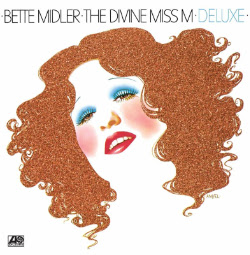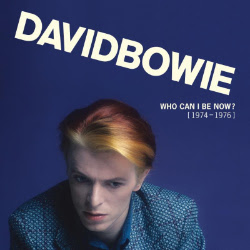
Bette Midler, 'The Divine Miss M: Deluxe Edition'
Long before Bette Midler became social media's beloved socio-political rabble-rouser, before "Wind Beneath My Wings" and your annual viewing of "Hocus Pocus," she was singing the soundtrack for a throng of naked, lustful gay men. That was 1969, when the now-iconic actress/singer/shade-thrower first unleashed her billowy croon at Continental Baths in the basement of The Ansonia Hotel in New York City. A few years later, in 1972, her bathhouse stage name, "The Divine Miss M," served as the title of her debut album. The release was partly recorded with a crowd in the studio where they "served Chinese food," noted in the reflective letter from Miss M, who gives a loving nod to the gay community that she says made her feel like "I had opened the door to the closet." Her flamboyant musical presence still radiates four decades later, as does her big-hearted renderings of career staples such as "Chapel of Love" and "Friends." Like her latest celebration of all-female groups from the mid-20th century, "For the Girls!," Midler has always relished a vintage sound. "The Divine Miss M" was when the wheels of her old-soul started turning. She was in her mid-20s then, but the sound emanating from songs such as the matriarchal waywardness of "Hello in There" and the sultry "Do You Want to Dance," featuring her bathhouse accompanist Barry Manilow on piano and Cissy Houston's backup vocals, defied her youthfulness. Deeper within the "Deluxe Edition" are seven rare mixes and two stunning demos, including her striking lullaby-like take on the Eagle's 1973 song "Saturday Night." Even though she wishes "I could remember more of it," Midler looks back fondly on the launch of her career, as she should. "The Divine Miss M" is as legendary as her own divinity.

David Bowie, 'Who Can I Be Now? (1974-1976)'
To David Bowie, a song was never just a song. It had to constitute a concept that couldn't be distilled into a single four-minute piece, an artistic credo the late master of subversion expounds upon during a terrifically meandering and insightful exchange with beat godfather William S. Burroughs. The conversation is published in a handsome book that excavates a brief-but-crucial period in Bowie's illustrious career: 1974-1976, when Bowie threw himself beyond the scope of his formative years and into the classic rock-'n'-roll sound that'd spill over into the unruly catalog of his later work. The book is part of an expansive box set, a follow-up to the collection's debut, "Five Years," spanning 1969-1973. Bowiephiles are immersed in his most exploratory artistic wonder years through the book's surprisingly even-handed commentaries, vintage Bowie photos and promo posters, and his handwritten lyrics for "Future Legend," circa 1974. Above all, the music speaks volumes about Bowie as an auteur who dared to step out of every box the industry tried to put him in. Following his eighth studio album, "Diamond Dogs," Bowie released 1975's soulful diversion "Young Americans" and 1976's spectacular image-breaker "Station to Station." The trifecta, a 12-disc experience that includes live discs and the previously unreleased album "The Gouster," is an enlightening submergence into the musicality, personality and versatility of Bowie's identity-challenging rock persona.
Kate Bush, 'Before the Dawn'
In 2014, revered stage-recluse Kate Bush came out of hiding for the handsomely produced live epic "Before the Dawn." The theatrical yarn is a hypnotic sprawl consisting of the gay-loved goddess' trademark goth sound, leaning heavily on two suites: "The Ninth Wave" (from her 1985 album "Hounds of Love"), explained by Bush in the liner notes as the "struggle to stay alive in a dark terrifying ocean," and "A Sky of Honey" (from 2005's "Aerial"), her self-described exploration of the relationship between birds and light. Even without the visual component (an array of celestially staged photos packaged inside the album suggest the show was a magical feast for the eyes), the evocative nature of uilleann pipes, the accordion, a bouzouki, a charango – and Bush's own fairy-like presence – foster a far-out wonderland only Bush could conjure. Which makes her return to the stage – her first live shows since 1979 – all that more thrilling. The 155-minute musical odyssey extends beyond the two suites, but because Bush thrives in an avant-garde state, the show refrains from being a best-of. Therefore, her earliest work is absent. (No "Wuthering Heights," folks.) "Lily" and "Top of the City" from 1993's "The Red Shoes" fill out the first of three discs. "Never Be Mine" is an early stand out – so good Bush could've walked off and left behind thousands of fans content to simply bask in her presence even if just for a few songs. Act III's trifecta, wherein she closes with "Aerial" and returns for an "Among Angels" / "Cloudbusting" encore, is only real because it actually happened. Otherwise, it seems to exist in another time and place – as does Bush, whose enigmatic presence and bewitching voice on "Before the Dawn" takes you far beyond wherever your feet think they are.











